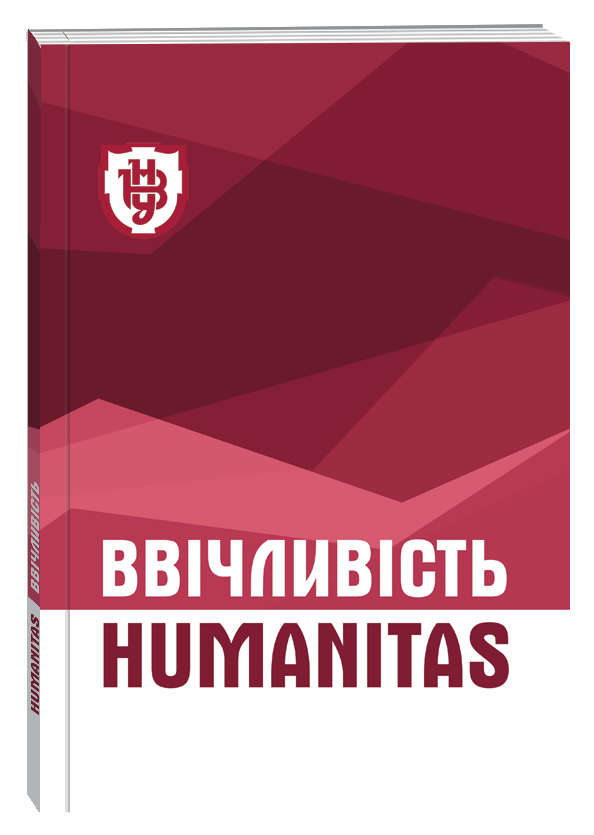THE USE OF MINDFULNESS TECHNIQUES IN SOCIAL WORK: REFLECTION OF EXPERIENCE
DOI:
https://doi.org/10.32782/humanitas/2022.5.9Keywords:
mindfulness, mindfulness practices, social work, awareness, increasing self-esteem, exercise, neuroplasticity, trainingAbstract
In recent years, tools, techniques and methods that may lead clients to become aware, understand and accept the nature of their own "I" have become increasingly popular in the social sciences. One of these is mindfulness, which is, on the one hand, a practice aimed at awareness of one's own psycho-emotional state, and on the other, an approach in which clients learn to change their attitude towards their own thoughts and emotions. Mindfulness includes both selfregulation of attention (the process of directing attention and conscious observation of the flow of thoughts, emotions, bodily sensations that a person experiences here and now), and orientation to experience (open, interested acceptance of one's own experience at a certain moment in time). This research is based on reflexive understanding and analysis of the authors’ experience of using mindfulness practices in social work experimental interventions, in particular, in the disclosure of methodological features of the use of individual mindfulness techniques, challenges that may arise when using them, requirements for trainers who will work with this methodology and its advantages. The techniques were piloted as part of interventions: for women living with HIV/AIDS, who have young children and found themselves in difficult life circumstances "Studio of Opportunities" (2012-2014, Dnipro, Poltava, Cherkasy, Chernihiv) and for parents raising children with autism (2021, Lviv). The paper reveals the specifics of using the exercises "Me in front of the mirror" and "My image" aimed at transforming the self-esteem of social work clients. The experience of piloting demonstrates positive results in the framework of raising the self-esteem of the participants, positive behavioral changes, improving physical and psycho-emotional well-being, finding internal resources, increasing their ability to self-motivate and self-empowerment. The paper discusses requirements for trainers in working with mindfulness techniques and obstacles and risks that should be taken into account in the practice of using the techniques.
References
Гальчинська О., Семигіна Т. Втручання з розвитку економічної самостійності «Майстерня можливостей». Київ: Поліграф-плюс, 2017.
Дем’яненко Б., Ратинська І. Майндфулнес засіб формування емоційного інтелекту та метод психологічної корекції емоційних та поведінкових порушень у дітей та підлітків з порушеннями психофізичного розвитку. Науковий часопис НПУ імені М. П. Драгоманова. Серія 19: Корекційна педагогіка та спеціальна психологія . 2021. Вип. 40. С. 27-137.
Пенман Д., Вильямс М. Усвідомленість. Як знайти гармонію в нашому шаленому світі / Пер. з англ. Харків: Моноліт-Bizz, 2021.
Ситник С. І., Пономарьова В. К., Трофімова Д. О. Практика майндфулнес як засіб подолання стресу в часи пандемії. Науковий вісник Ужгородського університету. Серія : Психологія. 2021. Вип. 3. С.50–53.
Столярик О., Семигіна Т. Соціальна робота із сім’ями, які виховують дітей з аутизмом: інтервенція з розвитку сильних сторін. Таллінн: Teadmus, 2022.
Baer R. A., Smith G. T., Hopkins J., Krietemeyer J., Toney L. Using selfreport assessment methods to explore facets of mindfulness. Assessment. 2006. Vol. 13(1). Р. 27-45.
Bishop S. R. et al. Mindfulness: A proposed operational definition. Clinical psychology: Science and practice. 2004. Vol. 11(3). Р. 230-241.
Kabat-Zinn J. Wherever You Go, There You Are : Mindfulness Meditation in Everyday Life. Westport: Hyperion Press, 1994.
Neece C. L. Mindfulness-based stress reduction for parents of young children with developmental delays. Journal of Applied Research in Intellectual Disabilities. 2014. Vol. 27(2). Р. 174–186.
Schuman-Olivier Z. et al. Mindfulness and behavior change. Harvard Review of Psychiatry. 2020. Vol. 28(6). Р. 371–394.
Semigina T. Development the strengths-based approaches in modern social work. Paradigms of the Modern Educational Process: Opportunities and Challenges for Society. Dallas: Primedia eLaunch LLS, 2019. Р. 96-105.
Siegel D. Mindsight. The New Science of Personal Transformation. New York: Bantam, 2010.







